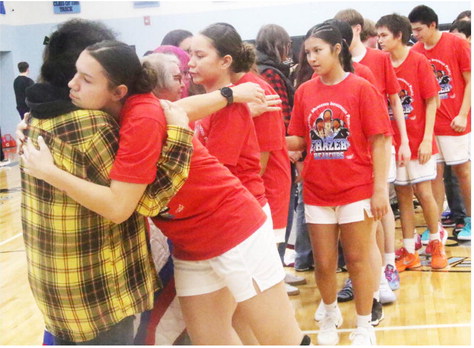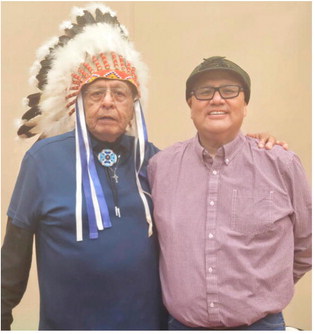Highway Patrol Likely Committed Unfair Labor Practice
The Montana Highway Patrol likely committed an unfair labor practice violation when it fired a trooper and union president after she raised concerns about working conditions with her labor representative, according to the Department of Labor and Industry.
In a complaint filed in April, the Montana Federation of Public Employees alleged the Montana Department of Justice and its Highway Patrol division retaliated against Trooper Alicia Bragg by terminating her after she shared a workplace survey with union staff.
The union alleged the termination was “retaliatory, excessive, wrongful, and in violation of Montana law.”
The Department of Justice, however, argued it terminated Bragg because she violated orders in releasing the survey, and she should have first sought permission to pass along its contents. The DOJ said it’s allowed to hold its officers accountable.
On June 28, an investigator with the Department of Labor and Industry’s Board of Personnel Appeals found “probable merit” exists to support the allegation that the DOJ committed an unfair labor practice when it fired Bragg for communications with her union.
Bragg had been employed with the Montana Highway Patrol since 2011.
“The Board Agent concludes MFPE has also shown more than a scintilla of evidence to support the allegation that the DOJ interfered with the administration of MFPE when they terminated the local union president for communications with her union,” said the investigator’s finding of probable merit.
In late January and early February, the Montana Highway Patrol had conducted an organizational climate survey as a “unique opportunity to address cultural challenges and leadership opportunities,” said the findings from the Department of Labor and Industry.
Bragg said the Montana Highway Patrol had pledged to release contents of the workplace survey, but it hadn’t done so. In the meantime, other troopers told Bragg they feared retaliation from comments they had made in the survey.
Bragg had received a copy of the survey and instructions to not disseminate it, but she said she shared it with her union because she wanted to pass along concerns other troopers had raised, according to the investigator’s findings.
Bragg also said she didn’t share it with the media or general public. A captain investigated whether Bragg publicly released it, and a Department of Justice representative quizzed her at an April 9 meeting, said the Department of Labor and Industry investigator in the findings.
“On a Saturday night when you’re in a dark alley and there’s a bad guy that you’re pursuing, is the union with you or are your partners with you?” the representative asked her.
The Daily Montanan has requested but not received full survey results from the Department of Justice. A consultant who conducted the survey also did not respond to an earlier email requesting an interview.
However, a summary of results obtained by the Daily Montanan reflected poorly on management. Some 45% of respondents said they were not optimistic about leadership, participants rated leadership effectiveness just 6.1 out of 10, and one employee said the brass works “for the optics.”
“Bragg explained that many troopers feared retaliation because of the comments they made in the climate survey,” said the investigator about the April 9 meeting. “Bragg explained that dozens of troopers came to her directly or through a third party ‘saying they are concerned about what they wrote in that document.’” So she sent the document to her union to try to get ahead of those concerns, the investigator said.
“Bragg stated during the April 9 due process meeting that although the DOJ stated they would anonymize the survey results, there was still fear among troopers that names and comments could be connected based on specifics,” the investigator said.
In the finding, the investigator said employees have the right to discuss their terms and conditions of employment among themselves and with the public “for the goal of mutual aid and protection,” although cases are “highly fact specific,” and confidentiality also plays a role.
In the case of Bragg, the investigator sided with the union in finding ample support for the complaint.
“It is undisputed that the climate survey shared by Bragg with her union representative involves the very ‘terms and conditions of employment’ that employees have a right to discuss,” the investigator said.
“Furthermore, Bragg asserts that she shared the information with her union for the benefit of her coworkers — people were specifically coming to her with concerns about what they wrote in the climate survey — which is an action ‘for mutual aid or protection.’” In a statement, the president of the Montana Federation of Public Employees praised the outcome of the investigation.
“It’s settled law that union members have a right to advocate for each other and better working conditions.” said MFPE President Amanda Curtis. “I’m glad the Board of Personnel Appeals sees this for what it is, a local union president acting well within her rights to fulfill her responsibilities.”
In a statement from the Montana Federation of Public Employees, Bragg said it was both her right and her responsibility to communicate about working conditions with union staff.
“Everyone at DOJ and MHP serve in law enforcement roles, and I hope this finding of probable merit is a reality check for our leadership,” Bragg said in the statement. “They’re on the wrong side of the law, and they’re failing to back our troopers.”
Bragg wants to be reinstated as a trooper, reimbursed for lost wages and benefits, and have her record cleared. A hearing is expected to take place later this fall following a separate grievance process.
Spokespeople for the Department of Justice did not comment Wednesday, July 10, on the finding their Highway Patrol division likely committed an unfair labor practice.


